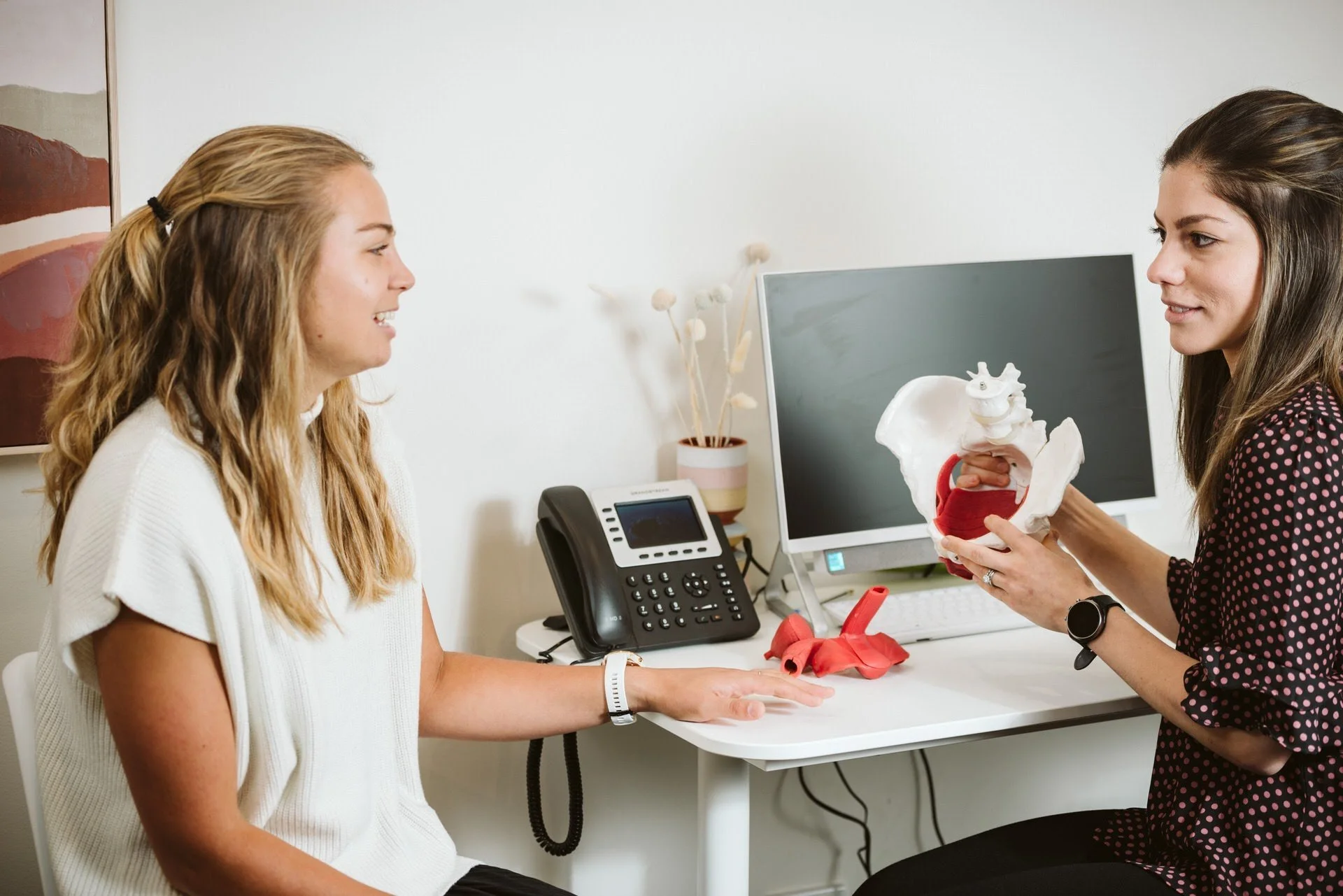For some, a prolapse diagnosis is validating. For others, it's confronting. As pelvic health physios, how we communicate from the first appointment can shape a patient's entire experience. It’s not just about what we say—it’s how we listen, educate, and empower.
Read MoreInformed consent is a collaborative process where patients are educated about their treatment options, risks, benefits, and alternatives. It is not simply obtaining a signature on a form—it’s about ensuring patients understand the proposed internal pelvic floor assessment and feel empowered to make informed decisions about their care.
Read MoreContinuing Professional Development (CPD) is essential for maintaining your registration as a Physiotherapist, but it’s much more than a regulatory requirement. For pelvic health physios, CPD is an opportunity to deepen your knowledge, refine your skills, and deliver exceptional care to your patients.
Read MorePilates, aqua therapy, and pre- and postnatal classes are becoming increasingly popular and are often considered valuable additions to physiotherapy services. But are they the right fit for your clinic?
Read MoreThinking About a Career in Pelvic Health Physiotherapy?
Pelvic health physios have the unique opportunity to work with a diverse range of clients, helping them manage life-changing conditions affecting the bladder, bowel, and pelvic floor. From managing pregnancy-related pain to overcoming incontinence, this rewarding career offers both personal and professional growth.
Ready to explore this path? Our latest blog offers tips on how to get started, from attending professional development courses to finding a mentor and gaining practical experience.
Dive in to learn how you can become a part of this supportive and impactful field!
Read MoreAs a clinic owner, your role is multifaceted, spanning operations, patient care, and staff development. A critical question arises: should you also be the one mentoring your team of physiotherapists? While the instinct to guide your staff might be strong, doing so can have challenges. This blog explores the reasons why outsourcing mentoring can be a smart solution and how business owners can still foster strong relationships with their team.
Read MoreStarting out in pelvic floor physiotherapy can be daunting, especially when it comes to identifying and grading prolapse. With limited hands-on experience from training and real-world challenges, new physios often wonder, "How do I know if it’s a prolapse?" and "Is it a grade 3 or grade 4 strength?" This blog addresses these common questions, emphassing the importance of using clinical reasoning and observations to make informed decisions. As with all new skills, it's okay to adjust your findings as you gain experience—learning and adapting is key to becoming a confident practitioner.
Read MoreAcross Physio (and other allied health and medical) clinics in Australia, the use of AI programs for client note taking and report writing are gaining popularity fast with the main reported benefits being huge time saving advantages and reduced administrative burdens, allowing clinicians to focus on what they do best - providing excellent patient care.
Read MoreIn the physiotherapy, nurturing strong relationships with professional referrers is not only essential for sustaining and growing your service but to enable to curate your ideal caseload full of the type of clients you love to treat.
Read MoreWho should pay for a practitioners mentoring?
We explore the various option and common pros and cons of each!
Handling negative feedback with empathy and professionalism not only resolves immediate concerns but also strengthens patient relationships and improves overall care delivery. By actively seeking feedback, listening attentively, and responding thoughtfully, we demonstrate our commitment to providing exceptional pelvic health physiotherapy.
Read MoreHey pelvic health physios! Congratulations on starting your new service or clinic. Today, let's talk about something that might not be your favorite topic: branding. I know marketing isn't your comfort zone, but building a strong brand is essential for your business's success and connecting with your community effectively.
Read MoreRecently, while teaching a group of post-graduate students about advanced pelvic floor assessment and treatment, I was asked an interesting question: "What is the most common mistake new pelvic physios make?" At first, I found it challenging to pinpoint a single answer. But after reflecting on feedback and observations from the teaching sessions, one recurring theme stood out. So, let's dive into this common pitfall and explore how to avoid it.
Read MoreBefore setting any goals, it’s vital to have an in-depth understanding of your patient’s personal circumstances. This includes their daily routines, responsibilities, physical capabilities, and emotional state.
Read MoreDespite Phyios working in the pelvic space often having an excellent understanding of pain science education and how this is critical in recovery for some of our chronic pain clients, a recurring challenge remains: effectively communicating these principles to patients, particularly those who have come to develop a rigid set of beliefs around the source of their pain and problems without the patient walking away being made to feel ‘they think it’s all in my head’.
Read More



















